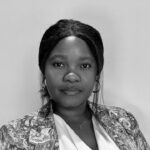African member states have made up approximately 30% of speakers during the substantive sessions of the Open-Ended Working Group on Security of and in the Use of Information and Communication Technologies (OEWG). African states are also among those most vulnerable to malicious ICT activities, which have potential to affect some of the region’s biggest economies. In a 2023 ranking of 93 countries’ levels of cyber safety, Nigeria, Morocco and South Africa were ranked 57th, 58th and 59th. Kenya and Ethiopia, which are also among Africa’s top 10 largest economies, fared even worse, ranking 67th and 86th out of 93 states for their level of protection from cybercrime. For the past two decades, the United Nations Group of Governmental Experts (GGE), OEWG and stakeholders have focused their work on acknowledging and accommodating regional initiatives to promote a culture of cybersecurity and responsible state behaviour in cyberspace. In January 2024, the African Union issued the Common African Positions on the Application of International Law to the Use of Information and Communication Technologies in Cyberspace (CAP on IL). This article shares perspectives on the recent CAP on IL and proposes tools that African member states can deploy to promote the CAP in the OEWG.
The CAP offers African Union (AU) member states significant benefits, including better-coordinated multilateral positions, more accurate interventions, more effective diplomacy and convenience for both strategic partners and potential allies. In the OEWG, the CAP on IL could play a vital role in increasing consensus and producing better negotiation outcomes. The OEWG has already taken many steps in this direction, such as holding special sessions for regional organisations to brief member states on issues that already enjoy consensus at regional level – most recently, the points of contact directory.
Widespread awareness of the AU’s CAP on IL could help the OEWG develop a framework for positions on international law (IL) for regional organisations and like-minded groups, as well as formations of states that do not belong to regional organisations.
What can African member states do to help promote regional positions and promote responsible state behaviour in cyberspace?
Adoption of measures to promote the CAP on IL amongst African member states will be complex. African member states vary greatly in terms of cyber maturity, cyber awareness and cyber capacity and capability. However, there are several measures African states can adopt to promote the CAP and regional initiatives broadly in the OEWG. These measures can be divided into six categories: ownership of CAP by African states in the OEWG, nomination of global lead states and champions, coordination between Addis Ababa and other multilateral stations, specific capacity building on CAP themes, consistent articulation by AU leaders and a robust show of African solidarity and cooperation.
The AU member states in the OEWG could take up lead and champion roles to coordinate regional statements on IL and positions for cross-regional engagement on the CAP. This, in turn, would ensure consistent articulation of the CAP and serve as a show of solidarity and cooperation. It would also encourage regular exchanges on CAP between AU member states in the OEWG and the AU Commission and cybersecurity expert group. Building capacity of all AU member states in the OEWG on the themes of IL will be key to promoting awareness and understanding. In the OEWG, AU member states could champion a framework for regional positions on IL by sharing best practices learned from the processes of mandating, coordinating, consulting on and adopting the CAP.
Each of these measures is based on an assessment of the success of the nine previous CAPs the African Union has adopted since 2005. For example, the nomination of lead states and champions focuses on reducing regional competition and improving trust and confidence in the AU system. The approach was used in the CAP on the post-2015 development agenda. As another example, the AU, through Addis Ababa, plays a leading role in negotiating CAPs, but incompatible agendas create tensions with other multilateral capitals, such as New York and Geneva. Coordination between the capitals can reduce open disagreements and breaking of ranks. For the AU states in the OEWG, greater capacity in the themes of the CAP will result in better articulation of the position in the OEWG and improve their chances of shaping the International Law section of the final OEWG report.
Unique Roles for All
The choice of which measures states should adopt depends on multiple factors, including cyber capacity and capability, cyber awareness and cyber maturity. This is not a comprehensive list of promotion measures. However, these measures illustrate some powerful initiatives that the AU and its states can pursue to support the CAP on the application of IL in cyberspace and to promote its views among the OEWG delegates.
Stakeholders and other actors can also support the AU member states in the OEWG. For example, Africa Group coordinators could coordinate statements on behalf of the AU. Another initiative could explore coordinating African non-governmental stakeholders to include the CAP in their interventions. Finally, it would be valuable to hold an open event for all member states and stakeholders, to explain the CAP and how AU member states will be promoting it, as well as how it will inform development of national positions.
The prioritisation of the CAP in the OEWG would ultimately act as a polestar for both the development of national positions on IL and regional organizations’ implementation of the framework for responsible state behaviour. The OEWG is already halfway into its mandate, and has created huge opportunity for African states and the AU to substantively participate in shaping global cyber governance. To realize an open, peaceful, secure and stable cyberspace, responsible actors have no time to lose in supporting and promoting the CAP in the OEWG.
Thumbnail image: credits to @possessedphotography on Unsplash




